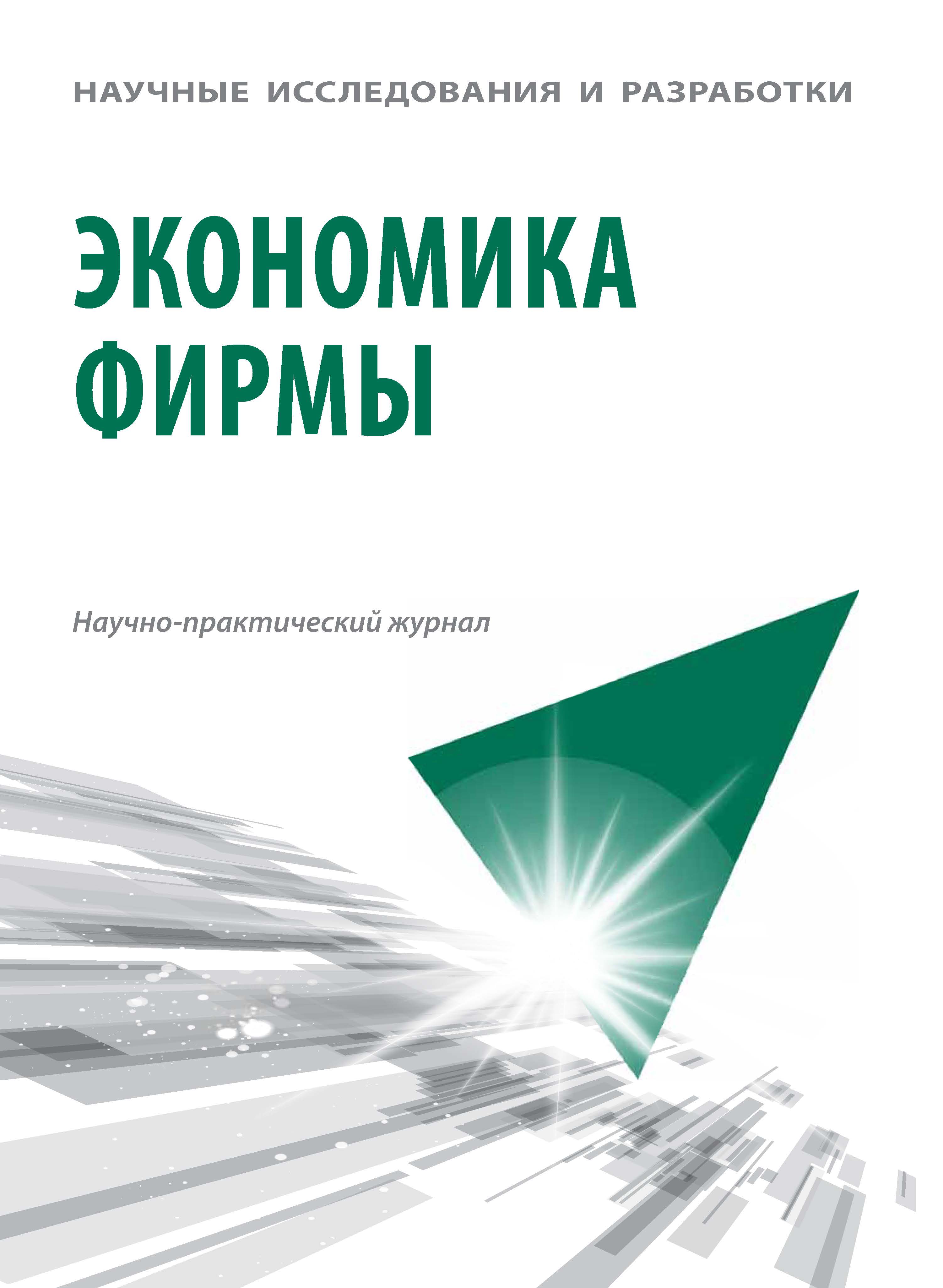Russian Federation
The article discusses the role of crisis management strategy in ensuring the competitive advantage of an international company in a crisis that arose for objective reasons. The author analyzes average enterprises’ preparedness for crises and proposes key directions for elaborating a crisis management strategy for international companies. Also, the author proposes key ideas for developing a crisis management strategy in terms of pandemic and worldwide regulatory restrictions.
strategy, crisis management, international companies, crisis, virus, competitive advantage
1. Andreev E.E. Sushchnost' i soderzhanie antikrizisnoj strategii predpriyatiya (organizacii) [The essence and content of the anti-crisis strategy of the enterprise (organization)]. Simvol nauki [Symbol of science]. 2016, I. 9-1 (21), pp. 52-55. EDN: https://elibrary.ru/WMZRMV
2. Garnov A.P., Krasnobaeva O.V. Aktual'nost' sistemnogo formirovaniya otechestvennogo promyshlennogo turizma [The relevance of the systemic formation of domestic industrial tourism]. Vestnik rossijskogo ekonomicheskogo universiteta imeni G.V. Plekhanova [Bulletin of the Russian University of Economics named after G.V. Plekhanov]. 2012, I. 2 (44), pp. 60-63. EDN: https://elibrary.ru/OPQVKX
3. Bankrotstvo i finansovoe ozdorovlenie sub"ektov ekonomiki [Bankruptcy and financial recovery of economic entities]. Moscow: Yurajt Publ., 2020. 153 p. Available at: https://urait.ru/bcode/455156 (accessed 12 April 2020). EDN: https://elibrary.ru/BAKKGC
4. Bykova O.N., Ol'hovskaya M.O., Profatilov D.A. Kraudfanding: internet-blagotvoritel'nost' ili instrument investirovaniya innovacionnogo proekta [Crowdfunding: Internet charity or an investment tool for an innovative project]. Innovacii [Innovations]. 2015, I. 2 (196), pp. 58-63. EDN: https://elibrary.ru/YPBITU
5. Repnikova V.M., Vasilevskij S.I. Vybor strategii korporativnogo razvitiya [The choice of corporate development strategy]. Ekonomicheskij analiz: teoriya i praktika [Economic analysis: theory and practice]. 2004, I. 5(20), pp. 10-15. EDN: https://elibrary.ru/HYSOPB
6. D'yakov S.A., Slastin A.D. Osobennosti kadrovoj politiki v krizisnyh situaciyah [Features of personnel policy in crisis situations]. Colloquium-journal [Colloquium-journal]. 2018, I. 11-8 (22), pp. 35-37. EDN: https://elibrary.ru/YOHUWT
7. Garnov A.P., Garnova V.Yu. Klasterizaciya ekonomiki: sposoby povysheniya effektivnosti gosudarstvennoj promyshlennoj politiki [Clustering the economy: ways to improve the efficiency of state industrial policy]. Vestnik rossijskogo ekonomicheskogo universiteta imeni G.V. Plekhanova [Bulletin of the Russian University of Economics named after G.V. Plekhanov]. 2016, I. 6 (90), pp. 110-117. EDN: https://elibrary.ru/XDCCSV
8. Kuznecov N.V. Vybor strategii antikrizisnogo menedzhmenta [The choice of crisis management strategy]. Innov: elektronnyj nauchnyj zhurnal [Innov: electronic scientific journal]. 2016, I. 1 (26), p. 4. EDN: https://elibrary.ru/WDLKAD
9. Repnikova V.M., Dzhamaludinova M.Yu. Metodika ocenki effektivnosti funkcionirovaniya nekommercheskih organizacij sfery uslug [Methodology for assessing the effectiveness of the functioning of non-profit organizations in the service sector]. Obshchestvo: politika, ekonomika, pravo [Society: politics, economics, law]. 2016, I. 11, pp. 51-53. EDN: https://elibrary.ru/XBJVWN
10. Muhopad V., Bykova O.N. Metody ocenki investicionnogo potenciala i integral'noj ocenki ekonomicheskoj privlekatel'nosti territorij i kompleksov [Methods for assessing investment potential and integrated assessment of the economic attractiveness of territories and complexes]. RISK: Resursy, Informaciya, Snabzhenie, Konkurenciya [RISK: Resources, Information, Supply, Competition]. 2009, I. 1, pp. 99-101. EDN: https://elibrary.ru/JXWSOD
11. Repnikova V.M. Perspektivy razvitiya korporativnyh struktur upravleniya v ekonomike Rossii. Dokt. Diss [Prospects for the development of corporate governance structures in the Russian economy. Doct. Diss]. Moscow, 1999. EDN: https://elibrary.ru/NLSCPF
12. Repnikova V.M. Rol' malogo biznesa v organizacii tekhnologicheskogo proryva ekonomiki Rossii [The role of small business in organizing a technological breakthrough in the Russian economy]. Aktual'nye problemy rossijskogo zakonodatel'stv [Actual problems of Russian legislation]. 2016, I. 13, pp. 127-131. EDN: https://elibrary.ru/WZCWIF
13. Rudskaya E.N., Klecova V.D. Avtotransportnaya logistika v sisteme transportno-logisticheskogo obsluzhivaniya: reshenie problem gorodskih gruzoperevozok [Motor transport logistics in the system of transport and logistics services: solving the problems of urban freight transportation]. Ekonomika i biznes: teoriya i praktika [Economics and business: theory and practice]. 2019, I. 11-2 (57), pp. 179-184. DOI: https://doi.org/10.24411/2411-0450-2019-11380; EDN: https://elibrary.ru/MKJGMH
14. Bykova O.N., Repnikova V.M. Faktory innovacionnogo razvitiya rossii kak prioritetnaya zadacha rosta ekonomiki i razvitiya promyshlennosti (gosudarstvennoe stimulirovanie innovacionnoj deyatel'nosti) [Factors of innovative development of Russia as a priority task of economic growth and industrial development (state stimulation of innovative activity)]. Normirovanie i oplata truda v promyshlennosti [Rationing and remuneration in industry]. 2019, I. 8, pp. 50-54. EDN: https://elibrary.ru/YZMRGM
15. A Crisis of Confidence Survey / Deloitte, Touche Tohmatsu Ltd, Forbes Insights. 2016. COVID-19 and Pandemic Planning: How Companies Should Respond. / Ernst Young Global. 2020. [Elektronnyj resurs] Available at: https://www.ey.com/en_gl/covid-19/covid-19-and-pandemic-planning--how-companies-should-respond
16. Crisis Preparedness as the Next Competitive Advantage: Learning from 4500 Crises: Global Crisis Survey. / PwC. 2019. [Elektronnyj resurs] Available at: https://www.pwc.com/gx/en/forensics/global-crisis-survey/pdf/pwc-global-crisis-survey-2019.pdf
17. Reeves M., Lang N., Carlsson-Szlezak P. Lead Your Business Through the Coronavirus Crisis. / Harvard Business School. 2020. [Elektronnyj resurs] Available at: https://hbr.org/2020/02/lead-your-business-through-the-coronavirus-crisis
18. Transport Restrictions List - Coronavirus Response. / European Commission, 2020. [Elektronnyj resurs] Available at: https://ec.europa.eu/transport/coronavirus-response_en






